
How to Break the Cycle of the Four Horsemen in Relationships
The Four Horsemen—criticism, contempt, defensiveness, and stonewalling—can wreak havoc on relationships if left unchecked. These negative communication patterns often lead to resentment and emotional disconnection. In this post, we explore how to recognize the Four Horsemen in your relationship and offer practical strategies to break the cycle, helping you rebuild trust, respect, and a deeper emotional connection.

“Daddy Issues" and Misplaced Responsibility
In our latest Pathways to Wellness blog post, Francesca Wehr, LCSW, delves into the complex dynamics of 'Daddy Issues' and misplaced responsibility. Discover how childhood experiences can shape adult relationships and learn effective strategies for healing and personal growth. Join us as we explore the impact of early parental relationships on mental health and provide actionable insights for a healthier, more fulfilling life.

Navigating Relationship Conflict: Managing Solvable, Perpetual, and Gridlocked Problems
Every relationship, no matter how strong, faces perpetual problems—recurring conflicts rooted in fundamental differences between partners. These issues, such as differences in personality, lifestyle, or values, can't always be solved, but they can be managed. In this post, we explore common examples of perpetual problems and offer strategies to handle them with empathy, humor, and acceptance, helping you build a stronger, healthier relationship despite the inevitable conflicts.
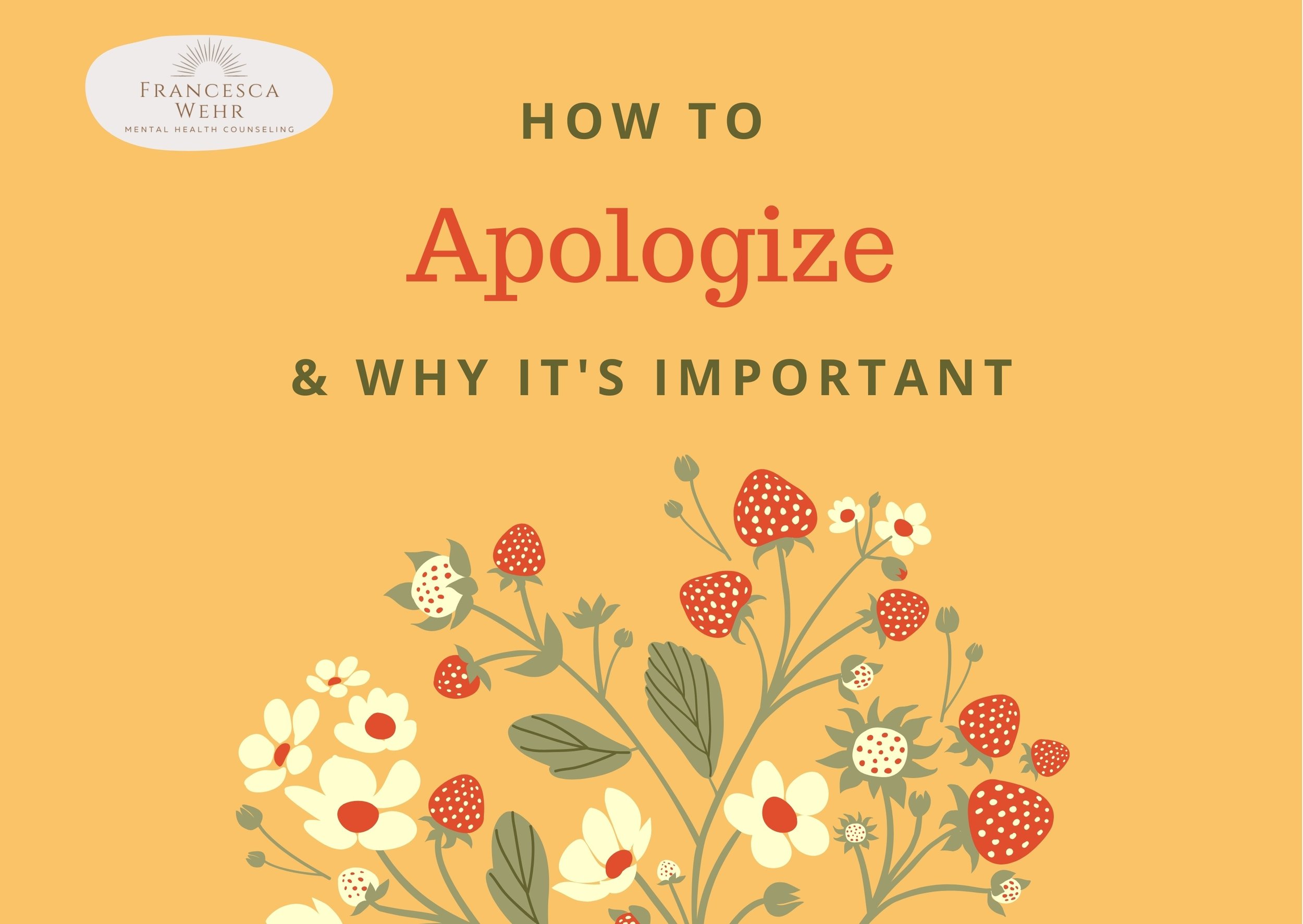
How to Apologize & Why It's Important
Mistakes are a natural part of life, but how we handle them can make all the difference in our relationships and personal growth. Francesca Wehr, LCSW, from Pathways to Wellness, explains the importance of a sincere apology and offers practical tips for making amends. Learn about the psychological impacts of apologizing and forgiving, and discover a guided self-reflection journal prompt to deepen your understanding of these essential skills. Embrace the power of an apology to heal, grow, and strengthen your connections with others.

What’s the Difference Between a Boundary and an Ultimatum in Relationships?
The difference between boundaries and ultimatums in relationships can often be a cause for confusion. However, understanding this distinction is essential in fostering healthy connections with others. In this blog post, we will delve into the characteristics of both and examine the core differences.
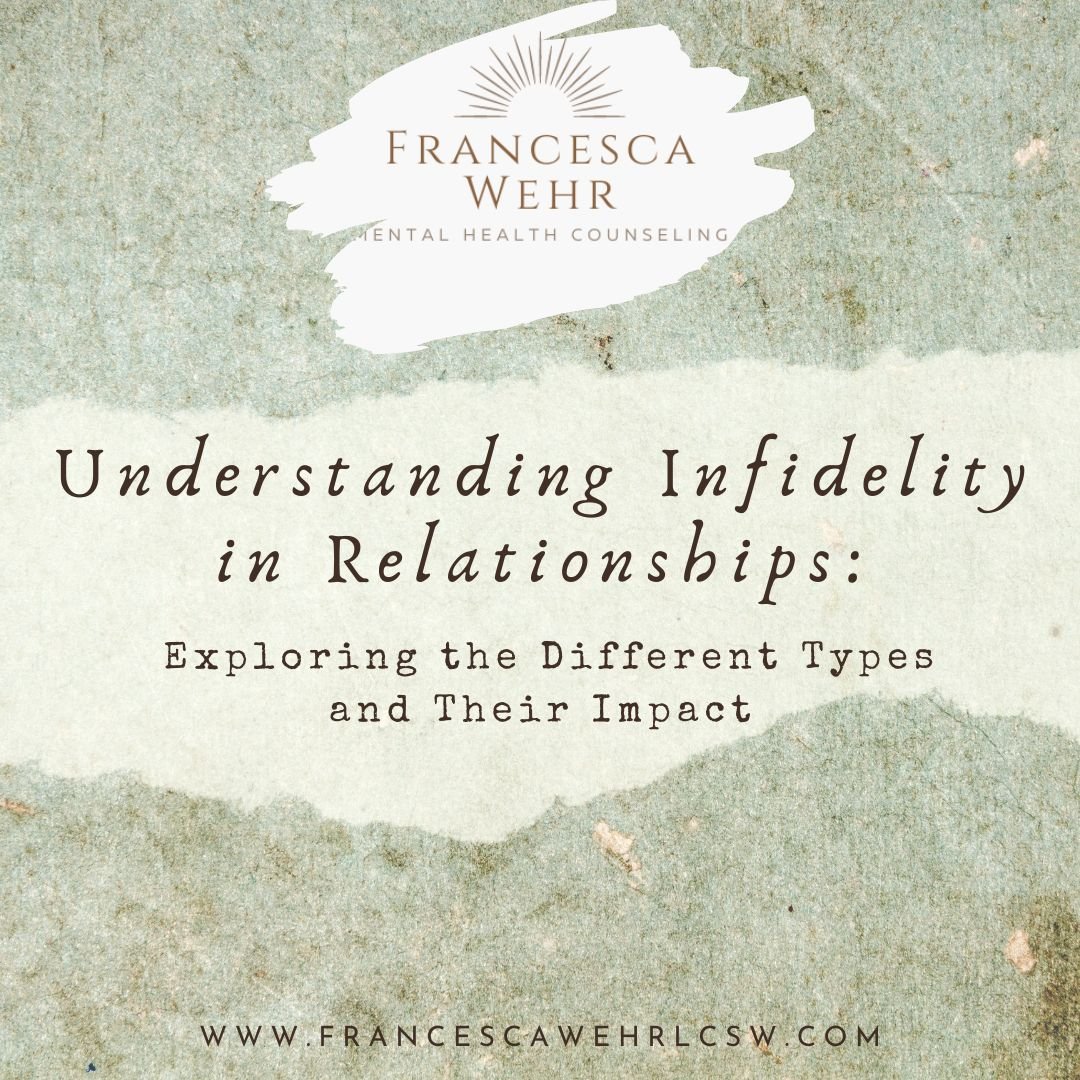
Understanding Infidelity in Relationships: Exploring the Different Types and Their Impact
Infidelity, or the act of being unfaithful in a committed relationship, is a complex and emotionally charged issue. It can manifest in various forms, each with its unique challenges and consequences. Pathways to Wellness: Insights from Francesca Wehr, LCSW Mental Health Counseling explores the different types of infidelity – physical, emotional, cyber, object, and financial – and provides examples of each to help deepen our understanding of this sensitive topic.
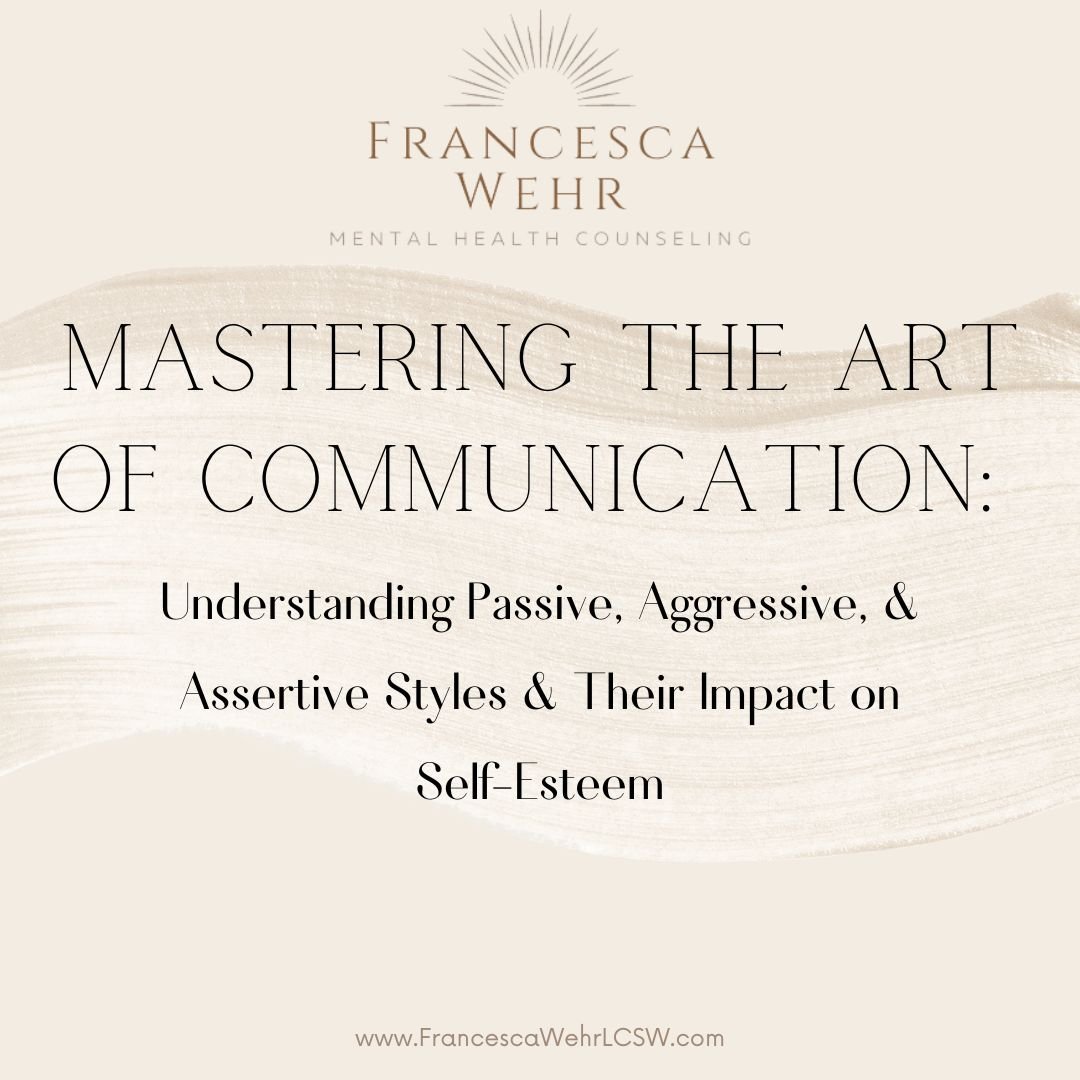
The Power of Assertive Communication in Promoting Positive Mental Health
Effective communication is an essential skill for building and maintaining healthy relationships, as well as for personal growth and well-being. There are three primary communication styles: passive, aggressive, and assertive. Francesca Wehr, LCSW Mental Health Counseling discusses these styles, their impact on self-esteem, and the importance of assertive communication in honoring our feelings, wants, needs, and desires.
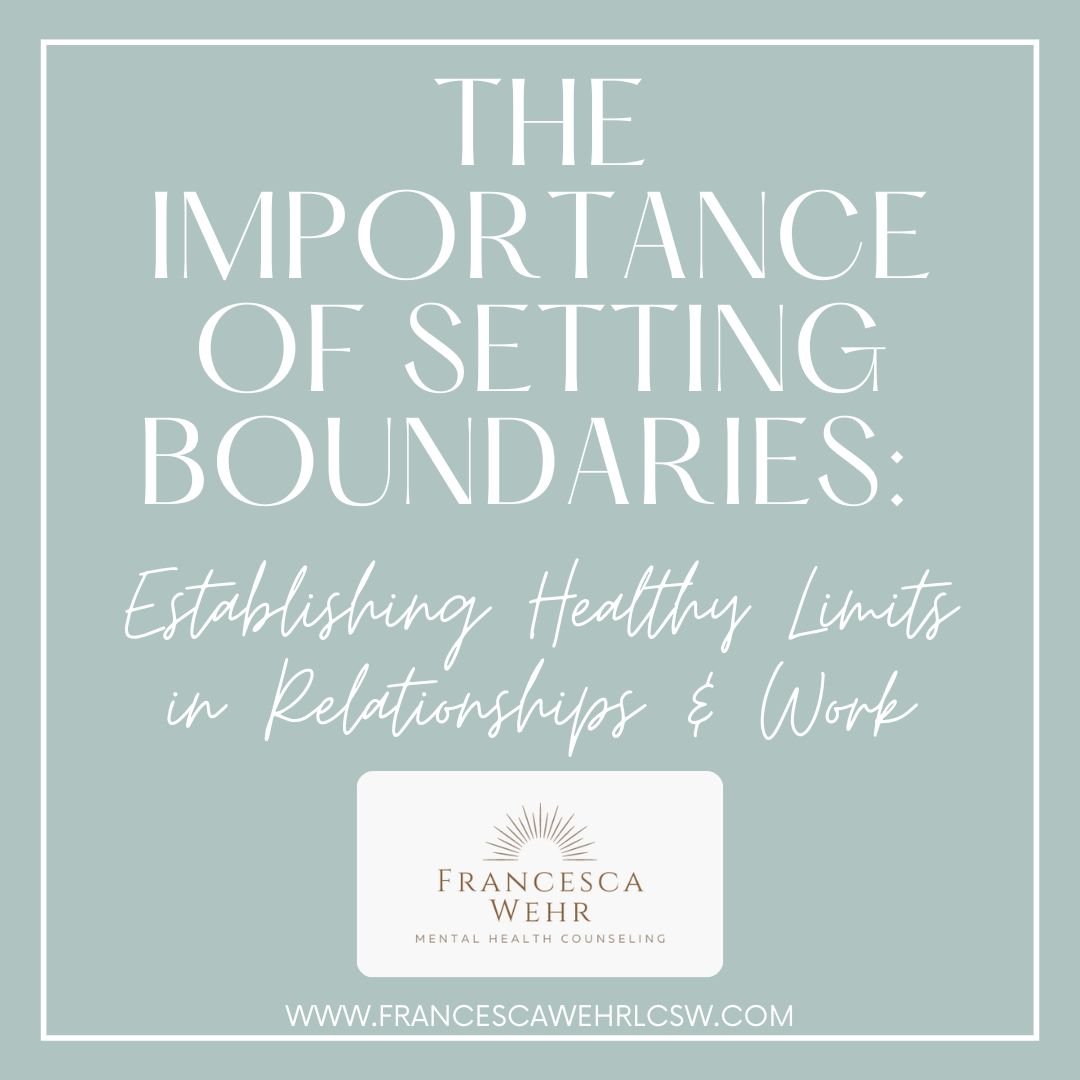
The Importance of Setting Boundaries: Establishing Healthy Limits in Relationships and Work
Setting boundaries is essential for maintaining a healthy balance in our personal and professional lives. Establishing clear and appropriate limits allows us to protect our well-being, manage stress, and foster positive relationships. Francesca Wehr, LCSW Mental Health Counseling discusses the importance of setting boundaries and provides tips for creating healthy boundaries in relationships and at work.
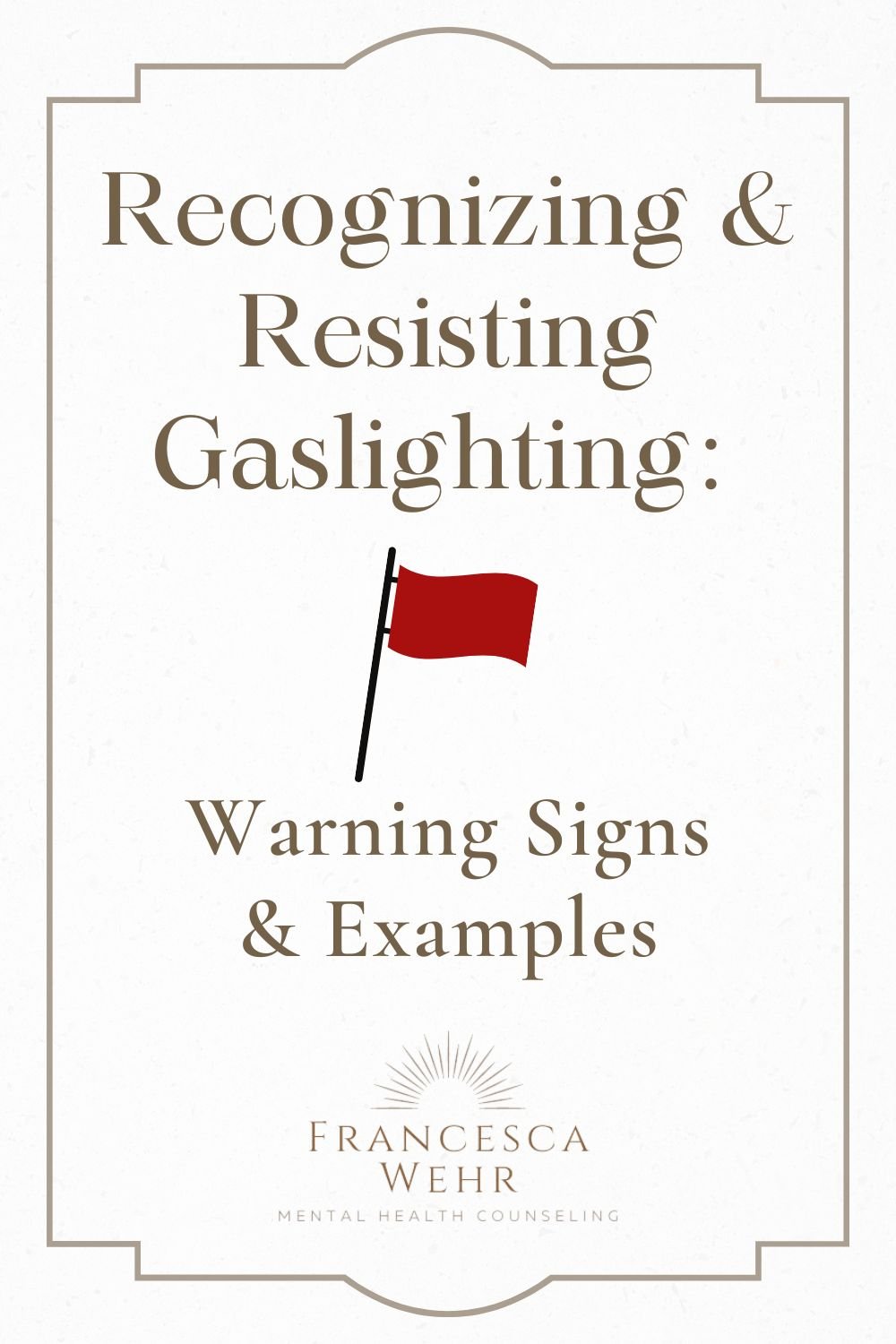
Recognizing and Resisting Gaslighting: Warning Signs and Examples
Gaslighting is a harmful form of manipulation that can make you doubt your own reality, memories, or sanity. In this post, we'll explore 8 common gaslighting tactics, from denial to projection, and provide real-life examples to help you identify when it's happening. Understanding these signs is key to protecting your mental health and standing up against this toxic behavior. Whether in romantic relationships, family dynamics, or the workplace, recognizing and resisting gaslighting will empower you to assert your reality and maintain emotional well-being. Learn how to safeguard yourself from manipulation and seek support if needed.

Abusive Relationships, Gaslighting, and the Cycle of Violence: Warning Signs and Pathways to Wellness
Pathways to Wellness: Insights from Francesca Wehr, LCSW Mental Health Counseling discusses the red flags and warning signs of toxic and abusive relationships, the cycle of violence, how to leave abusive relationships safely, and the resources available for those affected by domestic abuse. Recognizing and addressing these issues can empower individuals to seek help and break free from unhealthy relationships.




